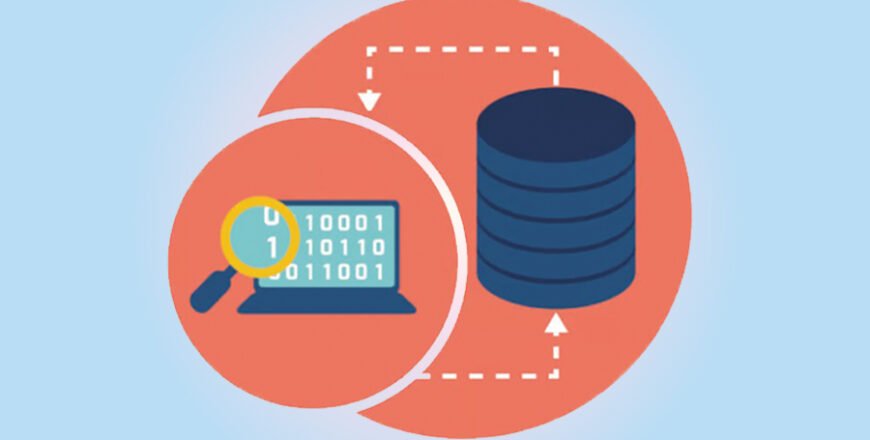Oracle SQL and PL/SQL
- Description
- Curriculum
- FAQ
- Reviews
- Grade
Introduction
This course is designed to equip you with the skills and knowledge required to become a
proficient PL/SQL developer. It covers the fundamentals of Oracle SQL, PL/SQL programming,
and advanced concepts, making it suitable for both beginners and experienced developers.
You’ll also gain the expertise to pass the Oracle 1Z0-149 certification exam on your first attempt.
What You’ll Learn
- Master Oracle SQL and PL/SQL programming from beginner to advanced levels.
- Prepare for the Oracle 1Z0-149 certification exam with confidence.
- Learn how to write and optimize queries, work with database objects, and manage transactions.
- Understand key concepts like triggers, cursors, collections, and exception handling.
- Develop real-world applications using Oracle PL/SQL.
-
1UDEMY 101: How to Use Udemy? + Tips4.28
Enter Short Description of the lesson
-
2PL/SQL Architecture05:01
Enter Short Description of the lesson
-
3What is a Pluggable Database?09:03
Enter Short Description of the lesson
-
4The Sample (HR) Schema Used in This Course03:13
Enter Short descrption of the lesson
-
5Course Materials & PL/SQL Cheatsheet07:14
Enter Description of the lesson
-
6Installing VMware and VirtualBox14:50
Enter short description of the lesson
-
7Installing VirtualBox on Mac OS X –07:33
Enter Short Description of the Lesson
-
8Downloading Virtual Machine Image01:51
Enter Short Description of the Lesson
-
9Installing VirtualBox and Oracle on Windows17:02
Enter Short Description of the Lesson
-
10Unlocking HR Schema07:34
Enter Short Description of the Lesson
-
11Installing Oracle Express Edition16:30
Enter Short Description of the Lesson
-
12Using Oracle Live SQL32:33
Enter Short Description of the Lesson
-
13Configuring SQL Developer06:45
Enter Short Description of the Lesson
-
14How to Reset a Forgotten Password04:23
Enter Short Description of the Lesson
-
15Enabling Server Output by Default4:39
Enter Short Description of the Lesson
-
16Configuring TNS Names10:20
Enter Short Description of the Lesson
-
17Setting Up SQL Developer on Mac OS20:25
Enter Short Description of the Lesson
-
18Anonymous Blocks03:02
Enter Short Description of the Lesson
-
19PL/SQL Outputs13:42
Enter Short Description of the Lesson
-
20Declaring and Initializing Variables09:20
Enter Short Description of the Lesson
-
21Data Types in PL/SQL08:15
Enter Short Description of the Lesson
-
22Using %TYPE Attribute07:07
Enter Short Description of the Lesson
-
23Constants and Literals06:42
Enter Short Description of the Lesson
-
24Scope of Variables06:53
Enter Short Description of the Lesson
-
25Built-in Functions in PL/SQL07:32
Enter Short Description of the Lesson
-
26Arithmetic Operations05:14
Enter Short Description of the Lesson
-
27Using DBMS_OUTPUT.PUT_LINE05:39
Enter Short Description of the Lesson
-
28Using Comments in PL/SQL04:21
Enter Short Description of the Lesson
-
29Creating Simple Scripts07:35
Enter Short Description of the Lesson
-
30Quiz on PL/SQL Basics2 questions
-
31IF Statements12:20
Enter Short Description of the Lesson
-
32Nested IF Statements08:50
Enter Short Description of the Lesson
-
33CASE Statements09:40
Enter Short Description of the Lesson
-
34WHILE Loops15:22
Enter Short Description of the Lesson
-
35FOR Loops14:33
Enter Short Description of the Lesson
-
36Nested Loops10:21
Enter Short Description of the Lesson
-
37EXIT Statements07:42
Enter Short Description of the Lesson
-
38GOTO Statements08:12
Enter Short Description of the Lesson
-
39LOOP Labels06:57
Enter Short Description of the Lesson
-
40Quiz on Control StructuresQuiz
-
41DML Operations in PL/SQL12:46
Enter Short Description of the Lesson
-
42SELECT Statements in PL/SQL11:30
Enter Short Description of the Lesson
-
43Working with Sequences12:37
Enter Short Description of the Lesson
-
44Inserting Records Using PL/SQL15:15
Enter Short Description of the Lesson
-
45Fetching Data Using PL/SQL13:23
Enter Short Description of the Lesson
-
46Working with Multiple Tables14:10
Enter Short Description of the Lesson
-
47Using Joins in PL/SQL15:17
Enter Short Description of the Lesson
-
48Using COMMIT and ROLLBACK10:42
Enter Short Description of the Lesson
-
49Quiz on SQL in PL/SQLQuiz
-
50PL/SQL Records13:47
Enter Short Description of the Lesson
-
51Using Nested Records15:30
Enter Short Description of the Lesson
-
52Collections in PL/SQL20:45
Enter Short Description of the Lesson
-
53Associative Arrays33:10
Enter Short Description of the Lesson
-
54Nested Tables22:50
Enter Short Description of the Lesson
-
55VARRAYs19:35
Enter Short Description of the Lesson
-
56Working with BULK COLLECT18:25
Enter Short Description of the Lesson
-
57Quiz on Composite Data TypesQuiz
-
58Introduction to Cursors10:33
Enter Short Description of the Lesson
-
59Explicit Cursors20:00
Enter Short Description of the Lesson
-
60Cursor FOR Loops12:16
Enter Short Description of the Lesson
-
61Cursor Attributes08:12
Enter Short Description of the Lesson
-
62Cursor Parameters13:24
Enter Short Description of the Lesson
-
63Implicit Cursors09:47
Enter Short Description of the Lesson
-
64Handling Cursors with Exceptions12:05
Enter Short Description of the Lesson
-
65Using Cursors in Nested Loops15:22
Enter Short Description of the Lesson
-
66Bulk Collect with Cursors10:40
Enter Short Description of the Lesson
-
67Quiz on CursorsQuiz
-
68Predefined Exceptions29:30
Enter Short Description of the Lesson
-
69Non-Predefined Exceptions18:25
Enter Short Description of the Lesson
-
70User-Defined Exceptions30:00
Enter Short Description of the Lesson
-
71Using RAISE_APPLICATION_ERROR07:49
Enter Short Description of the Lesson
-
72Propagation of Exceptions12:35
Enter Short Description of the Lesson
-
73Handling Multiple Exceptions14:30
Enter Short Description of the Lesson
-
74Logging Exceptions10:40
Enter Short Description of the Lesson
-
75Nested Exception Blocks09:20
Enter Short Description of the Lesson
-
76Quiz on Exception HandlingQuiz
-
77Creating Functions15:20
Enter Short Description of the Lesson
-
78Using Parameters in Functions12:30
Enter Short Description of the Lesson
-
79Overloading Functions16:12
Enter Short Description of the Lesson
-
80Stored Procedures17:05
Enter Short Description of the Lesson
-
81IN, OUT, and IN OUT Parameters14:34
Enter Short Description of the Lesson
-
82Invoking Procedures from SQL11:45
Enter Short Description of the Lesson
-
83Using Functions in Joins13:40
Enter Short Description of the Lesson
-
84Recursive Functions18:20
Enter Short Description of the Lesson
-
85Quiz on Functions and ProceduresQuiz
-
86Creating Packages20:12
Enter Short Description of the Lesson
-
87Using Package Body15:37
Enter Short Description of the Lesson
-
88Persistent State of Packages33:00
Enter Short Description of the Lesson
-
89Using Private Subprograms19:45
Enter Short Description of the Lesson
-
90Maintaining Dependencies18:35
Enter Short Description of the Lesson
-
91Recompiling Packages15:20
Enter Short Description of the Lesson
-
92Debugging Packages12:40
Enter Short Description of the Lesson
-
93Quiz on PackagesQuiz
-
94Introduction to Triggers09:50
Enter Short Description of the Lesson
-
95DML TriggersText lesson
Enter Short Description of the Lesson
-
96Using NEW and OLD Qualifiers19:22
Enter Short Description of the Lesson
-
97INSTEAD OF Triggers22:10
Enter Short Description of the Lesson
-
98Compound Triggers27:39
Enter Short Description of the Lesson
-
99Auditing with Triggers31:10
Enter Short Description of the Lesson
-
100Quiz on TriggersQuiz
-
105Introduction to Dynamic SQL11:15
Enter Short Description of the Lesson
-
106EXECUTE IMMEDIATE38:45
Enter Short Description of the Lesson
-
107Using Bind Variables30:20
Enter Short Description of the Lesson
-
108DBMS_SQL Package24:01
Enter Short Description of the Lesson
-
109Quiz on Dynamic SQLQuiz
Developers preparing for Oracle certification exams (1Z0-144, 1Z0-149).
IT professionals seeking to enhance their skills.
Access to a computer with Oracle Database installed (setup instructions are included).





